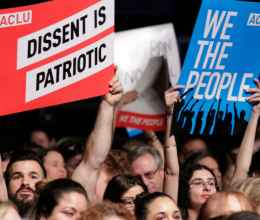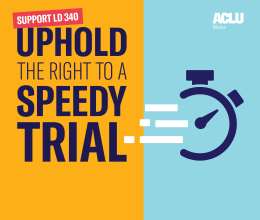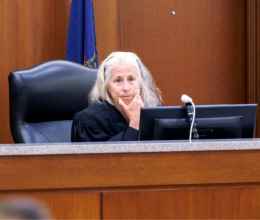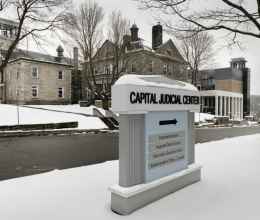
An ordinance passed Monday threatens free speech rights and targets unhoused residents under the guise of public safety.
Bangor City Council on Monday passed an ordinance that threatens free speech rights and targets unhoused residents under the guise of public safety. The ordinance will ban people from being on certain medians and impose fines of up to $2,500, even if they are not creating a safety hazard.
“People have a right to exist and interact with others in public spaces,” said ACLU of Maine Legal Director Carol Garvan. “Public spaces, such as streets and parks, are essential places for debate, discussion, and communication.”
“Bangor already has two ordinances that constrain people’s ability to express themselves on city streets and sidewalks,” added Garvan. “The city cannot ban people from certain medians, tell them they can express themselves elsewhere, and then rely on a different ordinance to suppress their speech in that second space. Taken together, Bangor’s ordinances will make it extremely hard for people to express themselves in public. These ordinances will also disproportionately silence and entangle the city’s unhoused residents in the legal system.”
Other laws that target unhoused residents and threaten free speech have been struck down in state and federal courts, including a Portland ordinance adopted in 2013. In 2014, a federal appeals court struck down Portland’s “median ban” following a lawsuit from the ACLU of Maine and Goodwin Procter LLP. Portland spent $175,000 in taxpayer dollars defending its unconstitutional policy. Numerous other cities have spent thousands after courts reversed unconstitutional ordinances restricting activities in public spaces, including Manchester and Hudson, NH, Albuquerque, NM, Lexington, KY, Cranston, RI, and Fall Rivers, MA.
Additionally, criminalizing this peaceful conduct in public spaces ignores the root causes of homelessness and makes it even more difficult for people to regain housing. Many people with limited resources cannot pay fines and become further entangled in the legal system, which imposes even greater barriers to housing and employment. Attempting to punish people out of poverty is the least effective and most expensive response to this growing housing crisis. According to a wide body of research, increasing access to housing, health care, and education reduces homelessness rates and saves taxpayer dollars.
"Public spaces belong to the public, not the government,” concluded Garvan. “City governments should not be in the business of banning speech in long-standing forums for public dialogue.”






